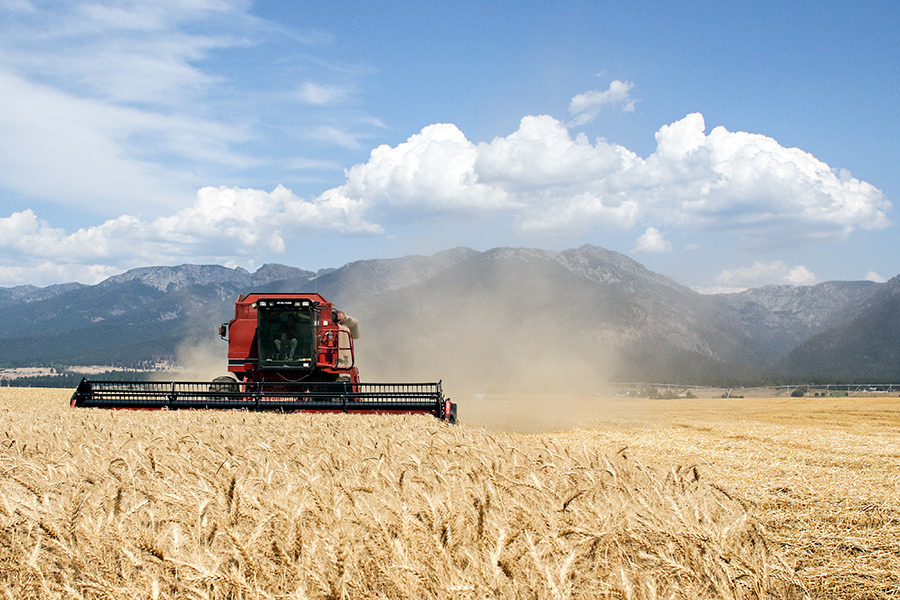The ongoing trade war between the U.S. and China continues to ratchet up, and Montana farmers are watching closely now that China has stopped accepting American agricultural imports.
“The current trade war has significantly impacted our producers, with China halting all imports of both Montana wheat and pulse (crops, such as lentils, dried beans, and chickpeas),” said Montana Department of Agriculture President Ben Thomas said. “While agriculture is often a first casualty in a trade war, it’s not just our farmers who are affected; it spills over to all aspects of our rural economies and we’re definitely concerned about the current course of action.”
For the last year, the U.S. and China have been engaging in a trade war, with President Donald Trump announcing 25 percent tariffs on $250 billion of Chinese products. On Sept. 1, Trump’s latest round of 10 percent tariffs on another $300 billion of Chinese imports is expected go into effect.
China has responded in kind, levying tariffs and duties on billions of dollars of American imports to its nearly 1.4 billion people. On Aug. 5, China announced it would halt all purchases of U.S. agricultural products.
Montana’s export markets depend on international markets, with Canada being the state’s largest trading partner at about 41 percent of all exports. Canada imported about $680 million in Montana exports in 2018, with South Korea following with $292 million, and China in third with $115 million.
Of the products Montana sells to China, corn and soybean producers are expected to feel more pressure, according to Montana Farmers Union President Alan Merrill. The U.S. Department of Agriculture released its supply and demand report Aug. 12, indicating a decrease in acreage for corn but increase production and yield. This came after indications that corn production would be down, given recent weather challenges in the Midwest.
Wheat markets are looking at deep world supplies and plenty of competition from other countries exporting wheat, particularly in Europe and near the Black Sea.
Farmers are already coming off five years of price declines for their crops, Merrill said, and this latest report shows more of the same.
“Farmers are taught to produce. The American farmer wants to produce the best quality food and best amount,” Merrill said. “What’s happening is we’re overproducing. There is so much corn in the world that you’re happy for what your farm did but then you go to the grain elevator to sell it, and it’s a kick in the belly. It’s devastating.”
U.S. soybean production is down 4.5 million tons from July’s predictions, largely due to a lower soybean production forecast due to lower global demand, mostly in China.
Thomas said the international market is of utmost importance to Montana farmers and ranchers.
“Foreign markets demand high quality agriculture products, and Montana has been a reliable and consistent trade partner for generations,” Thomas said.
“Ninety-five percent of our potential customers are outside of the U.S., and China represents one of the largest market opportunities for our world-class beef and grains.”
And while the U.S. is deploying financial aid to American farmers affected by the trade war, the subsidies have come under scrutiny.
In late July, the Trump Administration released the details of a $16 billion aid package for farmers affected by the U.S.-China trade war. According to the nonprofit Environmental Working Group, more than half, or $8.4 billion, went to wealthy farmers, with the top one-tenth of recipients receiving 54 percent of all payments.
The top 1 percent of subsidy recipients received an average of $183,331. The bottom 80 percent got less than $5,000, according to EWG.
Merrill said a survey of farmers shows the majority don’t want the subsidies, and would rather sell their products on the market.
“We actually don’t want those. Let’s go to the market and get it from the market,” Merrill said.
